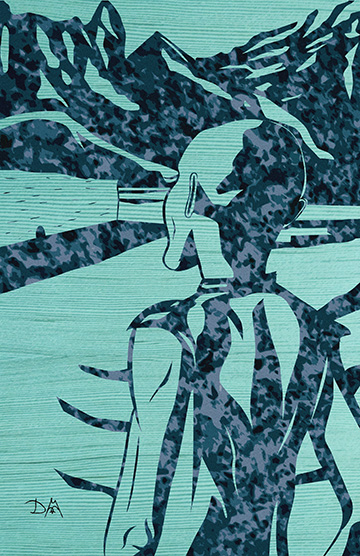
The Confederation of the 24th century is a remnant of former glories. Battered by centuries of plagues and rebuilding, colonies such as Deerwhere are now solitary and quarantined. It is a Utopian example of isolationism, electronic dependence, and human apathy. Through the chaos of the plagues, science developed an androgynous person immune to the diseases, the Uniale. The genetically designed uniales have the stability to support the weakened males and females, and the resolve to persevere.
Noral and Kalen are uniales whose genetic makeup as the third sex embody the intellect and emotions of males and females. Physically, this unique sex is a mixture of attributes and races. With the purposeful blending of epigenetics, uniale appearance and behaviors combine characteristics that would have taken generations to evolve naturally. As wifands of the trio unit families, their emotions are the mortar of Deerwhere. Language recognizes their distinctive third sex status and pronouns are standardized. Nhe (he, she) Nem (him, her) Nes (his, hers). Uniales were designed genetically, leaving them to create their own culture within the Deerwhere boundaries.
When Noral cannot abide the restrictions of the Third Option, nhe must find a bypass to the authority of the Quantum Computer, Keeper. Deerwhere uniales are hesitant to oppose their only known civilization, to recognize the colony’s slide into dystopia. A decision must be made.
The debut novel of The Deerwhere Trilogy emphasizes the genetic drive to procreate and to nurture our own beings. It is primal, beyond gender, beyond sexual identification. There are other colonies on the verge of the same self-actualization as Deerwhere. Book Two, Adrion’s Passage, will tell of the NW Earthquake which decimates Deerwhere and uniales will traverse the wastelands to find other Confederation Colonies such as Morwhere. Book Three, Clemin’s Voyage, follows a trio of uniales to the Colony of Franwhere, where Clemin breaks the quarantine and goes to sea.
